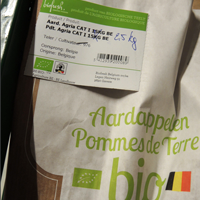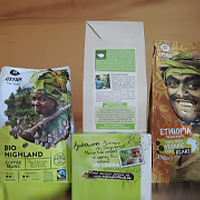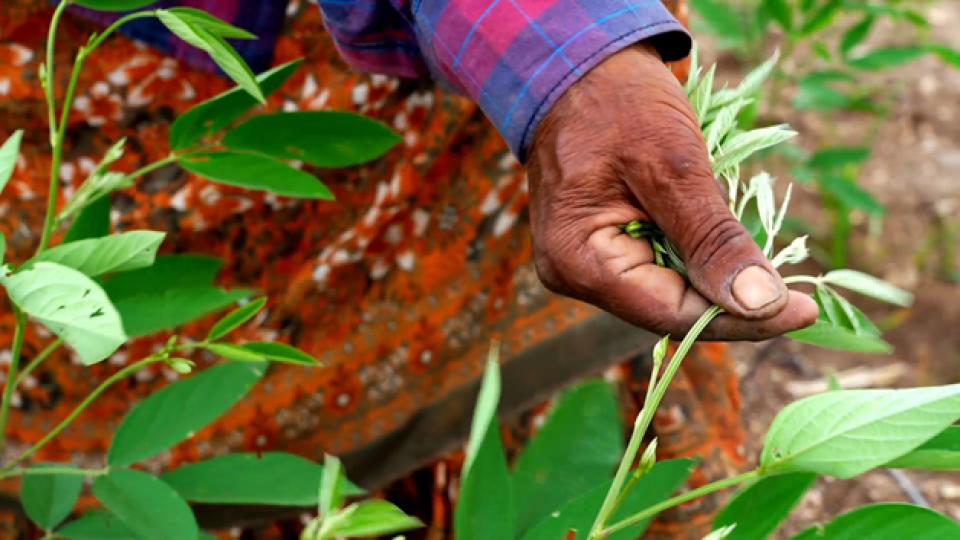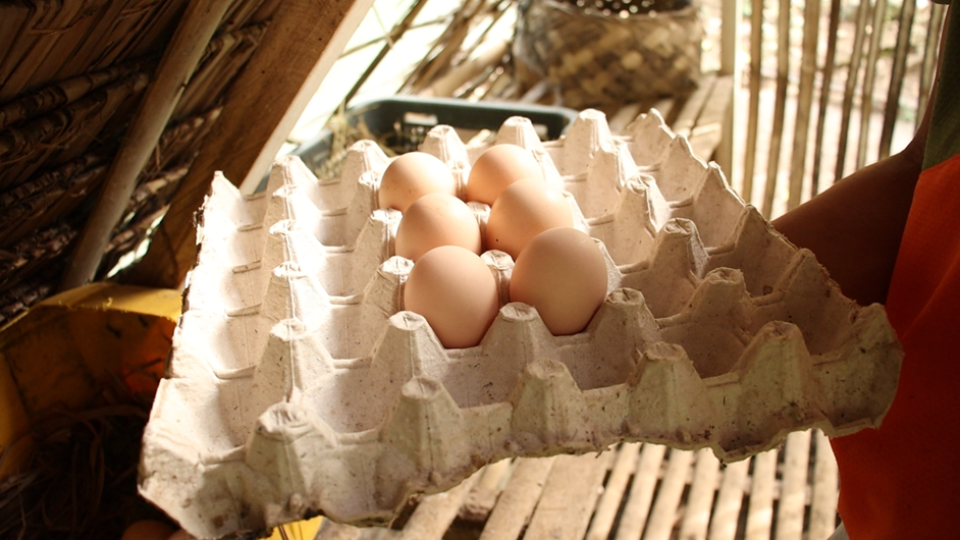

Short food chains narrow the gap between producers and consumers, but when food is traded through wholesalers and when supermarkets sell their own brands, active efforts are undertaken to make farmers anonymous.
This never really occurred to me until Vera Kuijpers, from the organic farm and farm shop Het Eikelenhof in north-eastern Limburg, told me about her latest experience with Biofresh, one of the major organic wholesalers in Belgium.
Every Thursday at 4.30 am, Vera and her husband Johan Hons, load their van with their freshly harvested vegetables and other produce and drive about 100 km to sell to Biofresh among a few other places.
Recently they took over 60 crates of new potatoes. Their red Aloette is a firm and delicious potato variety that withstands the common Phytophthora disease. Each crate is nicely labelled with the family name of Johan (Hons), and the variety.
“The moment we deliver our crates, staff at Biofresh remove the labels and attach their own, so that other people who come and buy organic produce will not know who has produced it. But this time, they also removed the name of the variety,” Vera says, “they just put ‘red potato’. I really wonder why they would do that?”
Vera and Johan strongly disagree with this new development, as one cannot compare one red variety with all the others.
“If customers in a supermarket want to buy the delicious Aloette, one week it may be this variety, but if the next week it is a different red variety that has a very different taste or is not tasty, they may stop buying red potatoes all together, and then the farmer who grows Aloette will no longer be able to sell their potatoes,” Johan says.
From a producer’s perspective he surely has a point.
When discussing this matter with my wife, Marcella, she points out that the contrast of how Oxfam markets Fairtrade products is very stark. On almost all packaging, you see the face of a farmer and often a personal story that goes with it. Supermarkets also sell Fairtrade products, and seemingly have no problem with an occasional personal touch.
A coffee drinker in Europe is unlikely to meet many coffee growers in the distant African highlands or Latin America. The photo and the blurb on the coffee package are a mere virtual connection.
There is no risk of consumers buying directly from producers, whereas a Belgian retailer or consumer would be able to contact a farmer in Belgium.
Naming the farmers and the varieties is important when selling produce, as it helps consumers relate to the food they eat and the people who produce it. As consumers increasingly turn to farm shops, farmers’ markets and other short food chains, wholesalers and supermarkets are now taking steps to make farmers and varieties anonymous.
The farmers are potential competitors, and the big buyers want to make sure the customers never meet the farmers. It is like a trade secret to stay in business, but also yet another tactic whereby farmers’ ability to negotiate prices with middlepersons and supermarkets are undermined.
Access Agriculture related videos
Creating agroecological markets
Home delivery of organic produce
Inspiring platforms
Access Agriculture: hosts over 238 training videos in over 95 languages on a diversity of crops and livestock, soil and water management, food processing etc. Each video describes underlying principles, as such encouraging people to experiment and adapt new ideas to their context.
EcoAgtube: a social media video platform, where anyone from across the globe can upload their own videos related to natural farming and circular economy.


